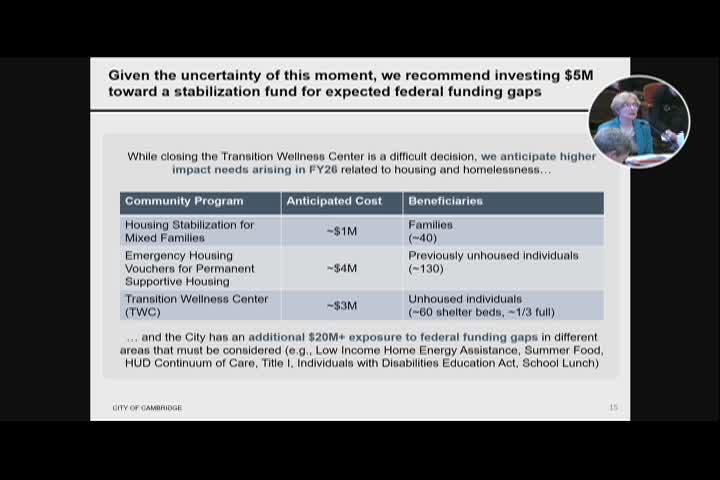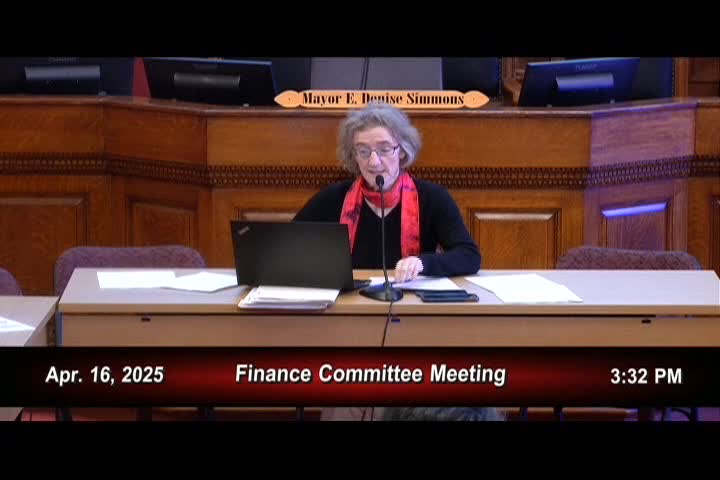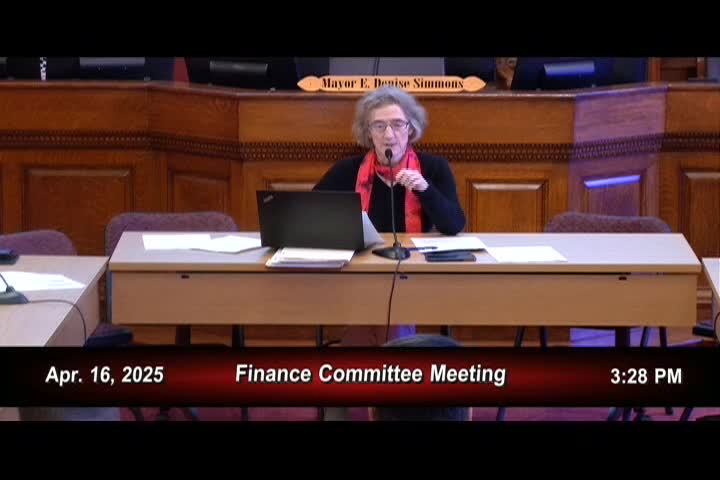Article not found
This article is no longer available. But don't worry—we've gathered other articles that discuss the same topic.

Councilors weigh Transition Wellness Center closure, housing vouchers and a successor cash program

Cambridge finance committee proposes $5 million stabilization fund as federal funding uncertainty grows

